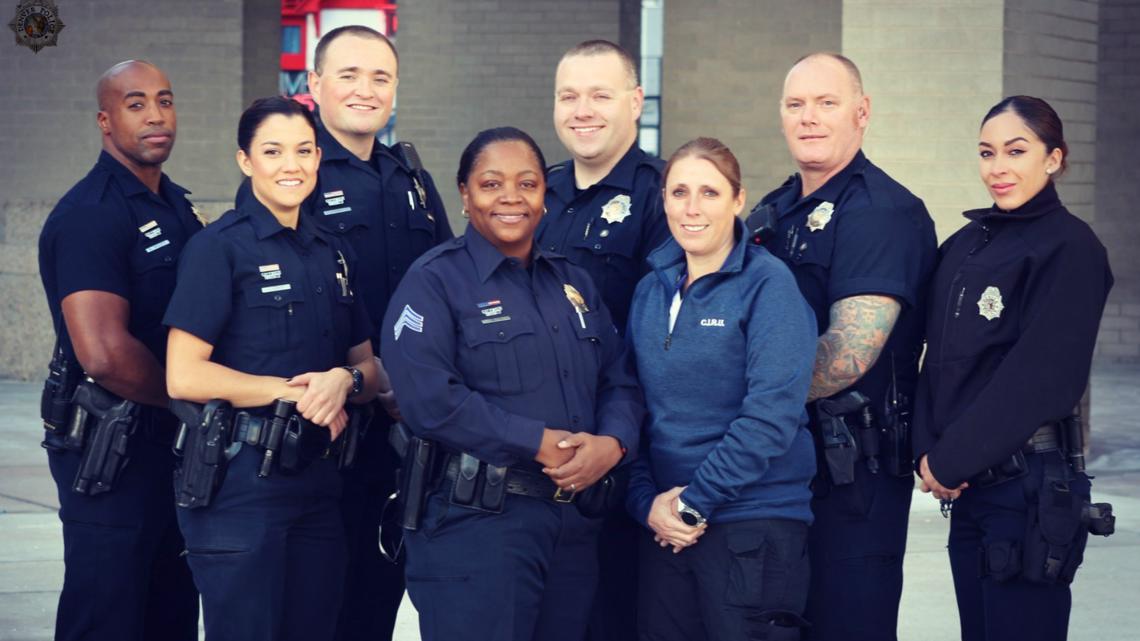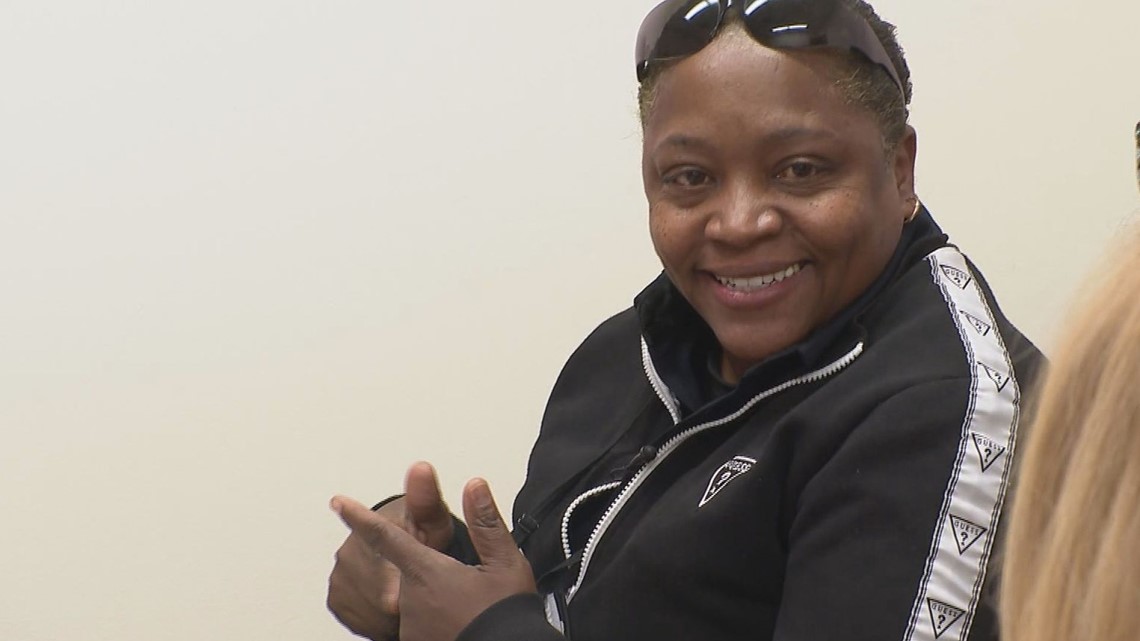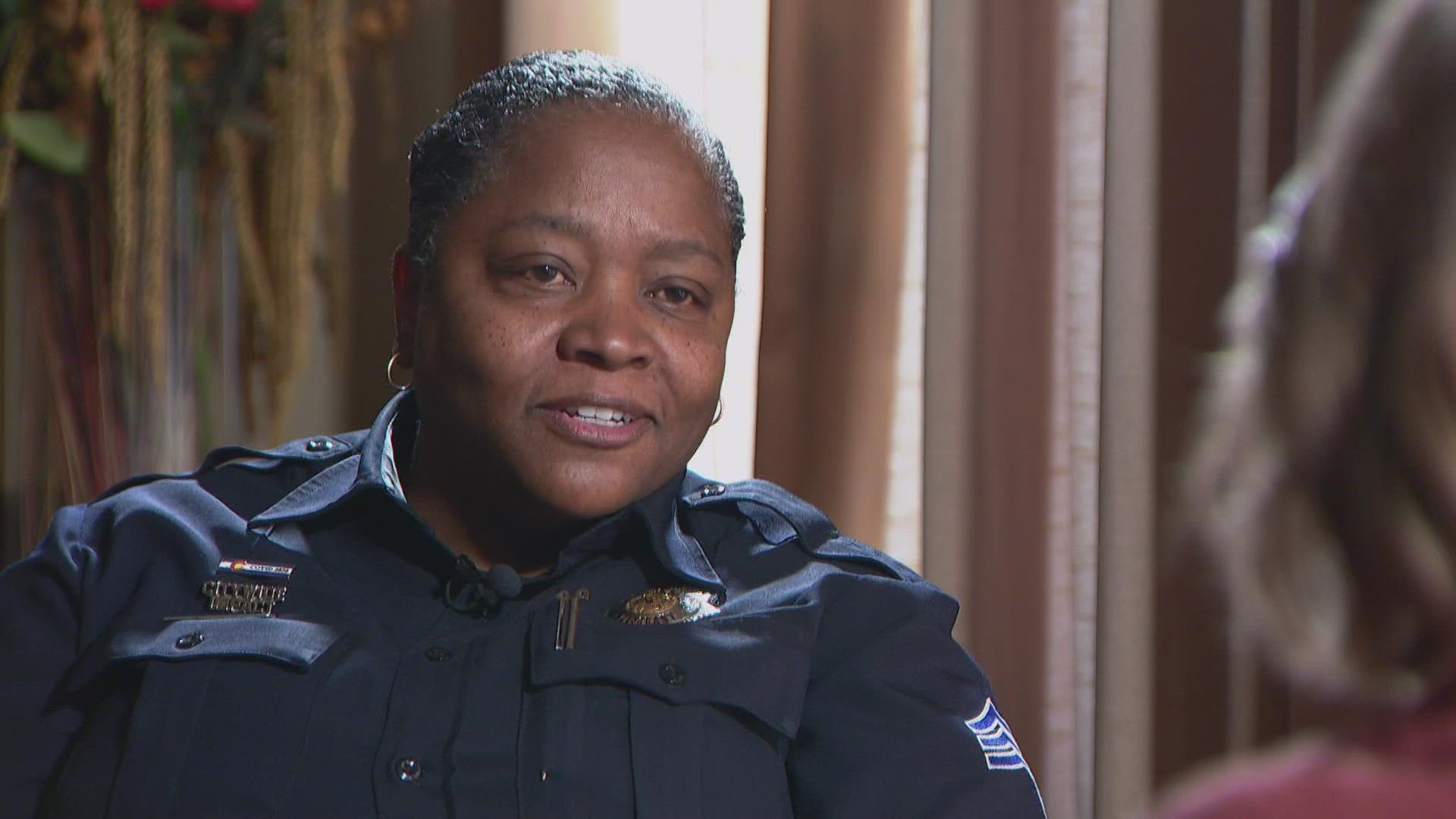DENVER — A 24-year veteran of the Denver Police Department filed a lawsuit claiming the agency has a rampant culture of racism, sexism and discrimination.
Sgt. Carla Havard alleges in an Equal Employment Opportunity Commission filing that she faces “continuing” discrimination based on race, retaliation, sex and disability. The basis of the complaint was first reported by Colorado Public Radio this week.
“[Havard] is now punished and retaliated against for raising concerns regarding gender and race discrimination within the ranks of the DPD,” Jenipher R. Jones, Havard’s attorney, wrote in the lawsuit.
Havard runs the Citywide Impact Team of DPD, which is designed to build deeper ties with the community and recruit diverse officers to the force. According to the Denver Post, Havard received the “Above and Beyond Award” in 2018 for displaying “exemplary professionalism.”


Only 2% of DPD’s 1,435 police officers identify as Black women and 7% as Black men, according to the lawsuit.
The lawsuit alleges the upper echelon of Denver Police retaliated against Havard when she called for an investigation into DPD officers over claims women face “omnipresent and rampant” sexism and misogyny.
Havard referenced a memo that, the lawsuit said, was circulated to members of the police department. That memo alleged women are “meant to feel unsafe” through multiple means including “inappropriate touching,” “verbal abuse” and “threats.” Women officers are often ignored, face credit stolen from them and are not acknowledged, according to the memo detailed in the complaint.
"But if you have systems in place, and we do, and if you have policies in place, and we do," said Havard. "And these harms and these violations are still happening, it's because there's no one there to ensure adherence to these policies equitably for everyone, and also accountability for when you don't adhere to those policies."
> You can watch an extended interview with Havard below:
The lawsuit said this leads to fewer women in police leadership.
The memo found that women brought up specific concerns including:
- “My Sgt. regularly caresses and plays with my hair and rubs my back. He has also grabbed my leg multiple times when we are sitting next to each other. This often happens in the presence of my Lt. and other Detectives.”
- “My Sgt. came up behind me and put his hands around my neck and pretended to choke me. He thought it was funny. Once he removed his hands, I placed mine next to my neck on instinct due to a trauma related reaction. He is aware of this trauma. He told me to chill out and put my hands down. It was just a joke.”
- A DPD employee “felt intimidated” and didn’t report “overt sexual harassment” to human resources because they were told doing so would “show disloyalty.”
- “Comments about women's bodies are made daily. The people that make these comments do it openly without any concern that they will be disciplined by superiors.”
- People using inappropriate and offensive words, including anti-LGBTQ slurs and a slur used against people with intellectual disabilities, "on a daily basis."


After Havard’s calls for investigations and discipline for those who created the hostile environment, the lawsuit alleges her supervisor, Glenn West, gave her main CIT duties, like diversity work and community engagement, to a lower-ranking officer, while giving Havard more time on patrol. Havard was given “no clear answer” as to why and still voiced her concerns on race and gender bias problems.
"It's not surprising whenever a Black woman is authentic, unapologetic, these allegations come up," said Havard.
In March 2022, Havard was put on an improvement plan that Jones called “false and unsubstantiated” in the lawsuit.
“Ms. Havard is essentially characterized and cast as the stereotype of an angry black woman; violent in violation of departmental policy and mayoral orders,” Jones wrote.
Following infractions allegedly included being two minutes late to a meeting, signing her initials on a form and the length of her sleeves. Havard was also required to keep a detailed log of everything she did during each shift, which was “nearly impossible” because of the “fluidity” of “long term community engagement.”
“If you’re going to complain on others, they will complain on you,” West allegedly told Havard, per the lawsuit.
Jones wrote that the “inescapable weight of retaliation” led Havard to go on medical leave for a work-related stress and anxiety disorder. She went to the hospital for this stress and was cited by West for not using the correct process for using sick and vacation time.
Jones wrote that Havard’s colleagues did not have to deal with the same treatment.
West declined to comment to 9NEWS, citing the pending complaint. Doug Schepman, DPD director of public affairs and communications, sent the following statement via email to 9NEWS:
The Denver Police Department will respectfully decline commenting on the pending complaint.
With the complaint pending, we’ll have to respectfully decline an on-camera interview, however, the following is some relevant background information we can share.
The Denver Police Department has taken a number of strides in recent years to improve internal and external equity practices. They include implementing many trainings and policies within the department.
Those include:
The creation of the DPD S.L.I.D.E. Bureau (Shared Leadership for Institutional Diversity and Equity)
Racial and Social Justice Academy (flyer attached above)
A number of community academies. These involve community members sharing their perspectives and experiences with DPD. This creates a learning environment and positive interaction for officers and residents. These academies include a Spanish-speaking Community Academy and Women’s Community Academy.
Creation of the Women’s Collective
30 by 30 – A recruiting initiative with the goal of having at least 30% of our officers be female by the year 2030
Instituting respectful workplace training
Work with the Mayor’s Office of Social Equity and Innovation to develop an Equity Action Plan
When recruits graduate the Academy, they now must attend an 8-hour cultural awareness training
Creation of an Asian Community Outreach Hotline to help communicate issues within that community
Providing ABLE (Active Bystander for Law Enforcement) training to all officers.
This is not every one of the steps taken recently, but gives you an idea of the direction the department is heading.
The Department of Safety EEO policy can be found on page 374, Section 117.05, in the DPD Operations Manual.
RELATED: Denver detective's handling of domestic violence report under investigation in wake of murder
SUGGESTED VIDEOS: Investigations & Crime

